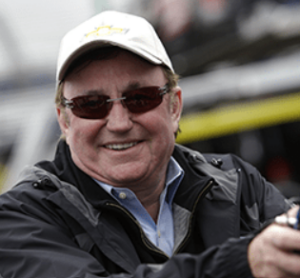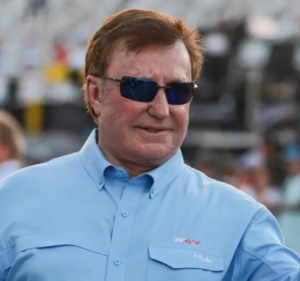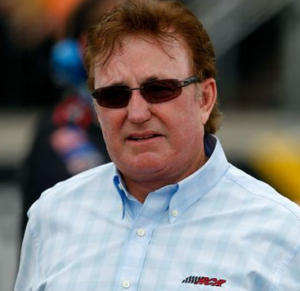Also Read: Ty Dillon Breaks Down Why Kaulig Racing Will Help Him Reach New Heights
Richard Childress: Loyal Defender of Earnhardt
Richard Childress, a legendary figure in NASCAR and the owner of Richard Childress Racing (RCR), played a pivotal role in Dale Earnhardt’s success.
As the team owner who partnered with Earnhardt for six of his seven Cup Series championships, Childress had a front-row seat to the highs and lows of Earnhardt’s career.
When reflecting on the Bristol controversy, Childress firmly defended his driver’s actions, emphasizing that the move was not intended to cause a wreck. In a 2019 interview with The Athletic, Childress stated:
“(Dale) wasn’t planning on wrecking; it was just one of them deals.
He definitely didn’t want to wreck (Labonte) to win. He wanted to get into him, move him up, and go by. But sometimes those things happen.”
Childress’s defense highlighted the fine line between aggressive and reckless driving, a line that Earnhardt often walked but rarely crossed. According to Childress, Earnhardt’s intention was clear: to win the race without maliciously ending Labonte’s chances.
The Art of the Bump-and-Run
- The bump-and-run is a maneuver as old as NASCAR itself. It involves tapping the rear bumper of a competitor’s car to unsettle them, causing them to lose momentum or veer slightly off their racing line.
- While it’s a legal move, its ethical implications are often debated, particularly when it results in a wreck.
- Earnhardt’s move on Labonte was a textbook example of the bump-and-run, albeit with dramatic consequences. Labonte’s car spun out, crashing into the wall, while Earnhardt sailed to victory.
- For critics, it was an overly aggressive act that undermined the spirit of fair competition. However, for supporters like Childress, it was a calculated risk that epitomized the fierce competitiveness of NASCAR racing.
- Dale Earnhardt’s actions at Bristol further cemented his reputation as “The Intimidator.” Loved by many for his fearless approach to racing, Earnhardt also had his share of detractors who viewed his aggressive tactics as unsportsmanlike.
- The Bristol incident encapsulated this duality, with fans split between admiration and criticism.
- Richard Childress understood this polarizing aspect of Earnhardt’s legacy better than anyone.
- While he acknowledged the controversy, he remained steadfast in his belief that Earnhardt’s actions were rooted in his unrelenting desire to win, not in a lack of respect for his competitors.
- “Dale had a way of racing that was tough but fair,” Childress explained. “He didn’t want to hurt anyone; he just wanted to be the best.”

Richard Childress’s Reflections on Earnhardt’s Career
As the years passed, Richard Childress often reflected on his time with Dale Earnhardt, cherishing the moments that defined their partnership.
For Childress, the Bristol incident was not just a controversy but a testament to Earnhardt’s passion and determination.
“Dale was one of a kind,” Childress said. “He raced with his heart, and that’s what made him so special. Even in moments like Bristol, you could see how much he cared about winning and about the fans.”
Childress also highlighted the impact Earnhardt had on NASCAR as a whole, crediting him with elevating the sport to new heights. From his seven championships to his countless memorable moments, Earnhardt’s legacy continues to inspire generations of drivers and fans alike.
The Lasting Impact of the Bristol Move
More than two decades after the Bristol race, the debate over Dale Earnhardt’s actions remains a topic of conversation among NASCAR enthusiasts.
For Richard Childress, however, there is no doubt about Earnhardt’s intentions or his legacy.
“Dale wasn’t just a driver; he was a legend,” Childress said. “What happened at Bristol was just one chapter in a career full of incredible moments. It’s something people will talk about for years to come.”
The Bristol incident serves as a reminder of the passion and intensity that define NASCAR. Whether viewed as a moment of brilliance or a step too far, it encapsulates the spirit of competition that drives the sport forward.
Also Read: Mark Martin on Austin Dillon: Denny Hamlin’s Influence Made All the Difference








